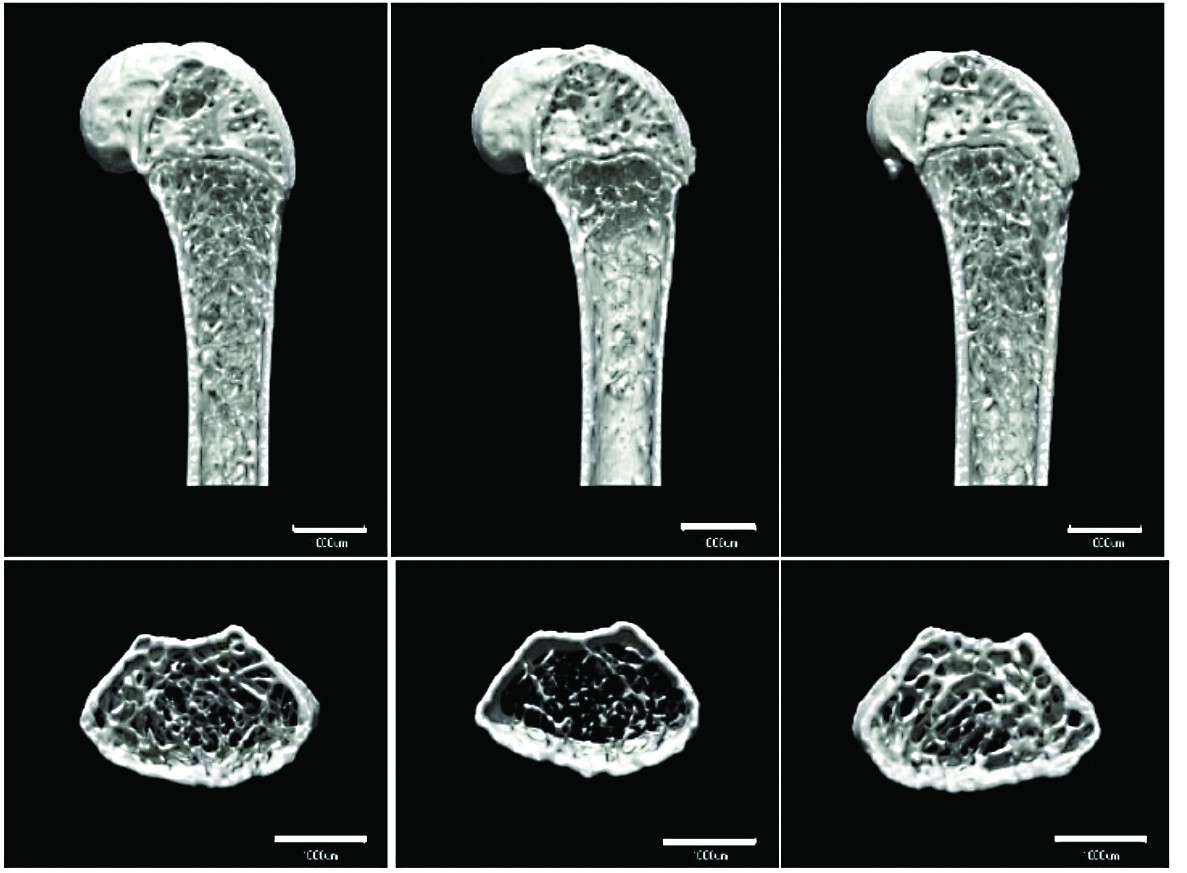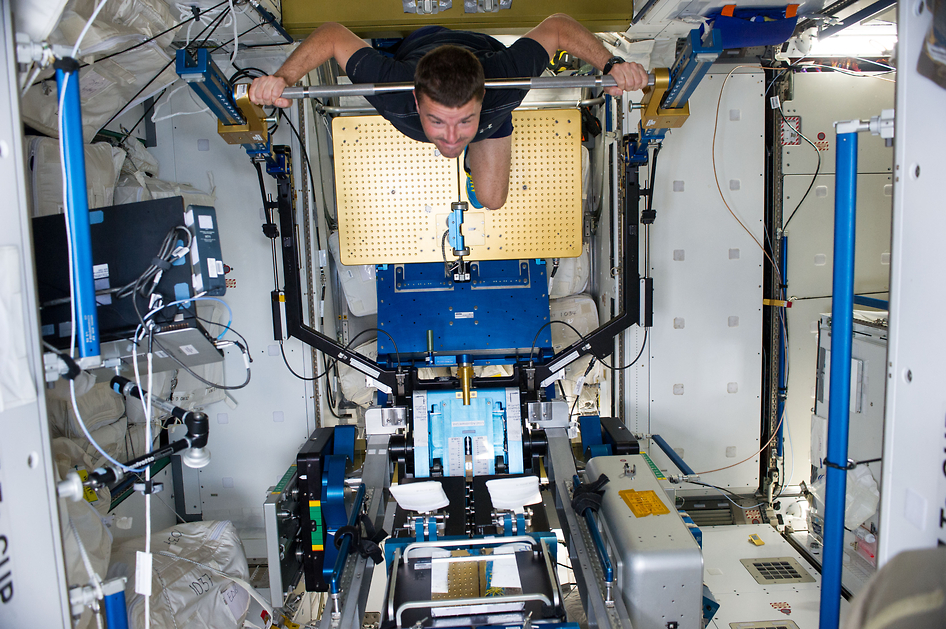Astronauts may need to jump in space to fight bone loss
A new study suggests that high-impact exercise could help limit bone loss while in space.

When astronauts spend extended periods of time in space, many surprising and sometimes harmful changes can occur in their bodies. Unfortunately, there aren't always ways to avoid or mitigate these effects.
One such health concern is a loss in bone density and bone strength due to the effects of microgravity and, to a lesser extent, radiation exposure. A NASA-funded study in 2009 found that astronauts' bone strength decreased by at least 14% on average during a six-month stay in space. Other studies have found much higher rates of bone loss.
But a new study suggests that astronauts and mission planners could employ an effective weapon in the fight against bone-density loss: jumping and other forms of high-impact exercise.
Related: Landmark NASA twins study reveals space travel's effects on the human body
Out of the 17 astronauts who participated in the new study, which was published online Thursday (June 30) in the journal Scientific Reports, only eight regained full bone mass density one year after returning from flight. Bone density loss was found to be much higher in astronauts who flew on missions longer than six months.
But the researchers also found that astronauts who engaged in resistance-based training while in space were able to recover bone mineral density after they returned. The authors thus propose adding "jumping resistance-based exercise that provides high-impact dynamic loads on the legs" to astronauts' existing exercise routines to prevent bone loss and promote bone growth while on spaceflight missions.
"Jumping provides short bouts of high-impact, dynamic loads that promote osteogenesis [bone growth]," the researchers wrote, while adding that "neither running, cycling, squats, nor heel raise volume were associated with bone recovery." Adding jumping exercise routines to astronauts' existing exercise regimens may prevent bone loss and actually reduce the amount of exercise time needed each day, the authors suggest.
Breaking space news, the latest updates on rocket launches, skywatching events and more!
Of course, any new jumping regimen would require specialized equipment, and space is always limited aboard any spaceflight. "Successful implementation of high-load jump-training on-orbit will require an exercise device that mitigates forces transferred to the vehicle, along with an exercise regimen that accounts for astronaut deconditioning," the researchers wrote in the new study. The authors acknowledge that since living quarters are typically cramped aboard spaceflights, "exercise equipment will need to be optimized for a smaller footprint."
Obviously, a study size of 17 astronauts isn't exactly conclusive, and the authors note that much more data is needed before any firm conclusions can be drawn regarding the effects of resistance training on astronaut bone loss.
Astronauts already engage in regular exercise while in space to combat the effects of microgravity, and scientists have already tried feeding astronauts genetically modified vegetables to help stimulate bone growth and fish oil rich in omega-3 fatty acids to help mitigate bone breakdown. With bone loss still plaguing astronauts on long flights, there is still a need for more methods to mitigate it.
Email Brett at BTingley@Space.com or follow Brett on Twitter at @bretttingley. Follow us on Twitter @Spacedotcom or on Facebook.

Brett is curious about emerging aerospace technologies, alternative launch concepts, military space developments and uncrewed aircraft systems. Brett's work has appeared on Scientific American, The War Zone, Popular Science, the History Channel, Science Discovery and more. Brett has degrees from Clemson University and the University of North Carolina at Charlotte. In his free time, Brett enjoys skywatching throughout the dark skies of the Appalachian mountains.

